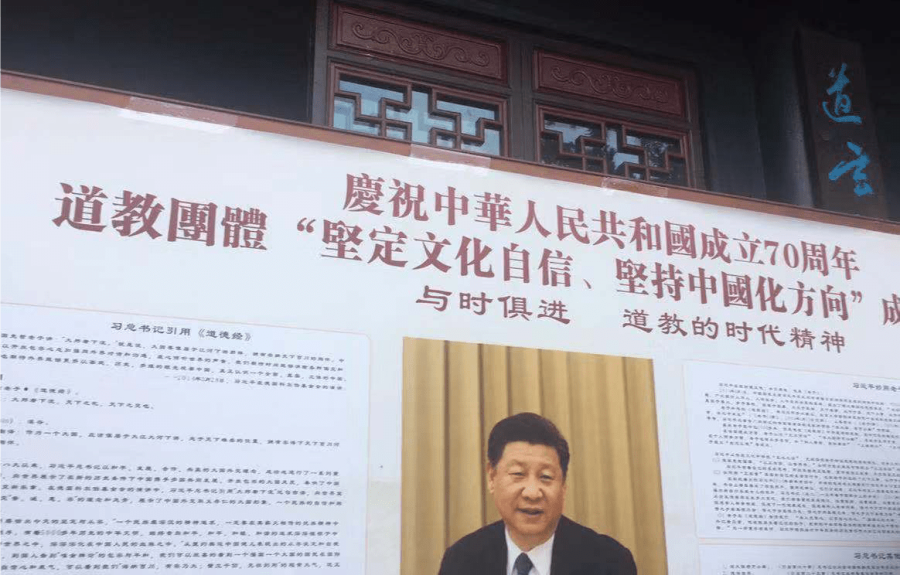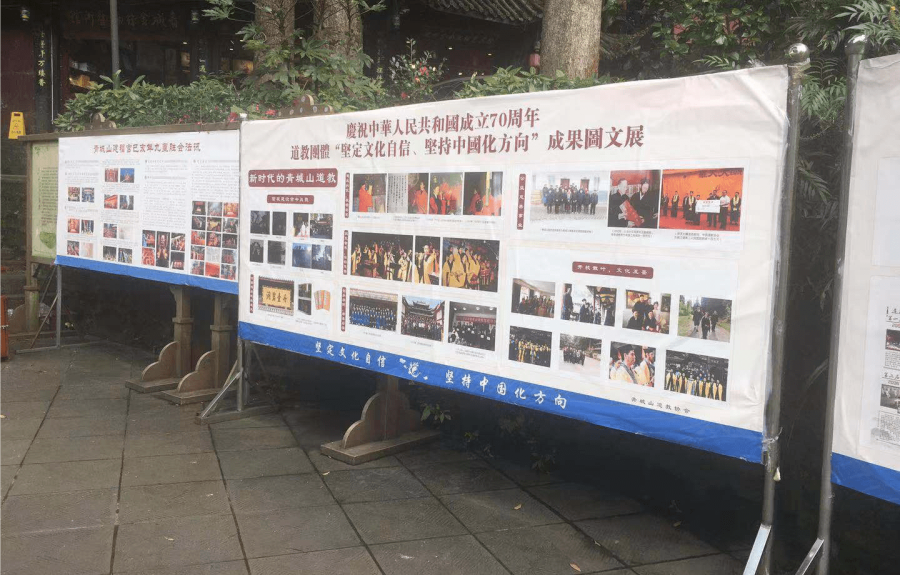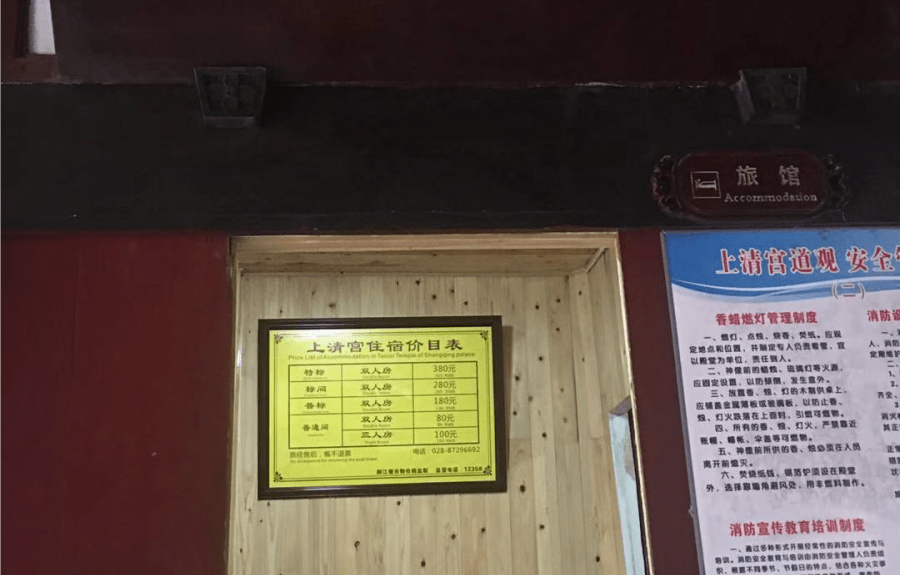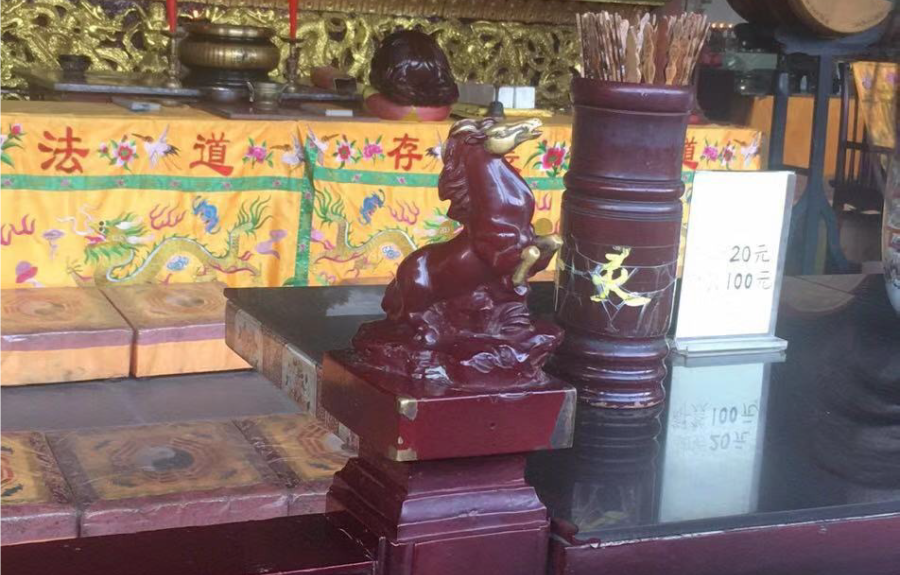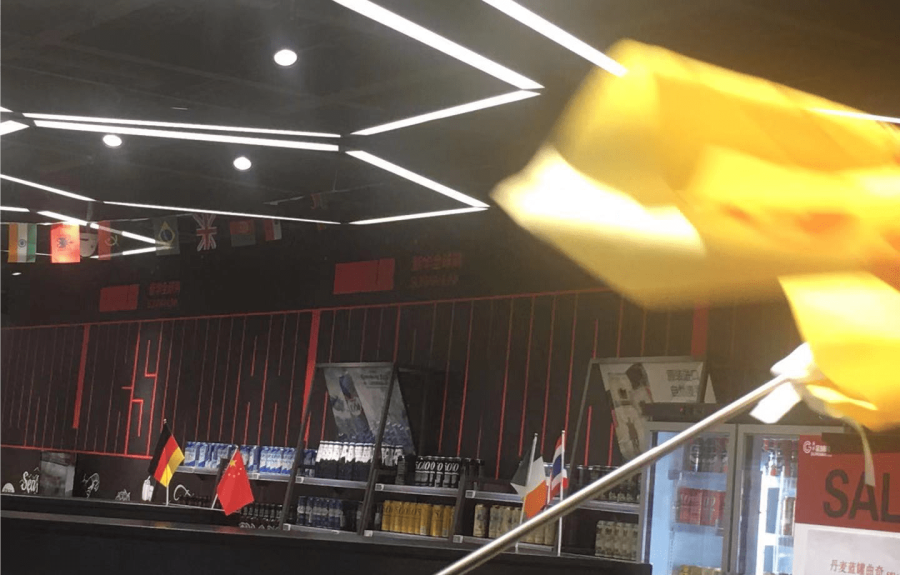Secularized Religion? Commercialized and Politicized Taoism
Taoism has an awkward existence in China. As the Communist Party is committed to Atheism and the imported Buddhism and Catholic Christianity have both challenged its position, Taoism has found a unique way to adapt, in a somewhat strange way, through secularization. By secularization of Taoism, I mean that instead of a religion with a commitment to mystical forces (force of the natural law), the modernized Taoism in China is now both a token of Chinese soft power and a commercialized cultural product.
The trip to Qingcheng Mountain is revealing of both aspects of modern Taoism. The entrances of Qingcheng Mountain and of Shangqing Palace are occupied by eye-catching propaganda billboards titled “Affirming Cultural Confidence and Insisting On the Sinicizing Direction,” demonstrating how Taoism now serves as a cultural token of China. Image 1 features a story of how President Xi cleverly quotes Lao Tzu (习总书记妙⽤⽼⼦). Taoism’s participation in the celebration of China’s 70th anniversary (庆祝中华⼈民共和国成⽴70周年成果展) further shows how Taoism has been integrated into the political discourse. It would be difficult to reconcile Taoism as a religion with the CCP ideology, however this reconciliation process is made easier as more emphasis is placed on Taoism’s philosophical nature whereas its religious nature downplayed.
Not only is Taoism politicized as a symbol of Chinese culture, but it has also been commercialized. Image 3 and 4 give us a glimpse of how Qingcheng Mountain makes a profit. Aside from the more traditional means of fortune-telling and blessing, Qingcheng Mountain has also expanded its service to an immersive experience of Taoism, allowing tourists to spend a night or so in Shangqing Palace. You do not to be a pious believer to experience the daily lives of Taoist priests (道⼠). Region is run as a business here.
With that being said, it is not necessarily a bad thing that religion has become more mundane. For one, a mundane religion is likely to be more tolerant of other beliefs. Dazu Rock Carvings, for example, include elements from Taoism, Buddhism, as well as Confucianism. This fusion of religious elements is reflective of the tolerance and diversity of religion in the Chinese society, dating back to the Tang dynasty.
Homogeneity of Middle Class Experience
As part of the grand BRI project, Chengdu’s International Railway Port connects Chengdu with Europe and ASEAN countries. One of the most visible benefits for Chengdu residents is duty-free shops. Image 5 is a poorly taken photo of the Chengdu Sunwah Link Shopping Center (新华全球购), which is essentially a railroad version of airport duty-free shops.
Despite the fact that the Sunwah Link Shop claims to import products from over 20 countries (as the flags in Image 5 show), the actual products displayed are surprisingly similar to what you might find in any big shopping mall located at a second-tier city. I took a look at the clothing section and found familiar brands like Furla, Micheal Kors, and Versace Jeans, the so-called "entry luxuries" popular among middle class consumers. According to the guide, the primary selling point of Sunwah Link Shop is its affordability rather than its diversity. As goods are delivered to Chengdu by train, they tend to be cheaper compared with the prices Daigou (代购) or Haitao (海淘) platforms charge. The guide told me that the shop is often crowded with consumers who drive all the way from the city center to stock up bottles of wine and diapers. All of this sounds really similar to the newly opened Shanghai Costco.
In professor Wu Lijuan’s CIT lecture on the social development of China, she mentions how the process of individualization in China is one where every individual is promised to be different but turns out the same. Chengdu Sunwah Link Shop to an extent mirrors Shanghai Costco, except that Chengdu Sunwah Link Shop is a state-led project whereas Costco is a foreign company. However, it seems that the state-led market integration is not so different from the global capital-led consumerism from an ordinary middle-class consumer’s perspective. Although consumers are given more options, their shopping diet is somehow homogenized.


